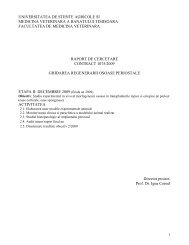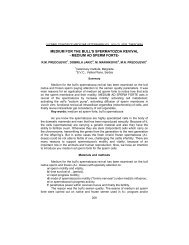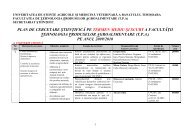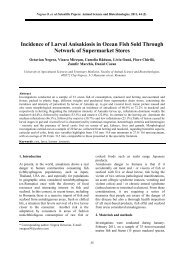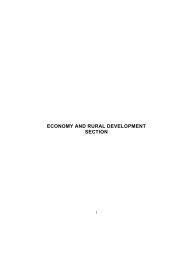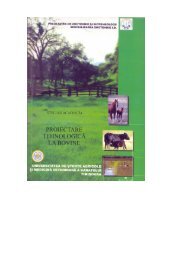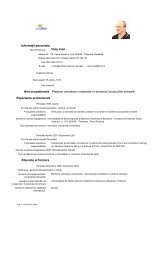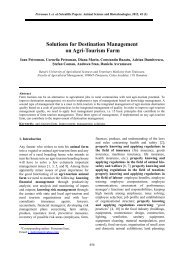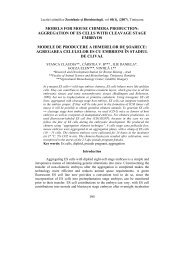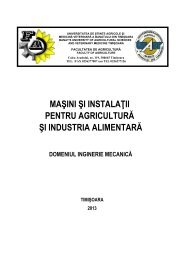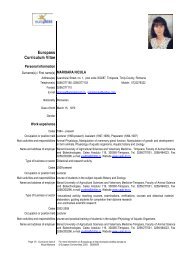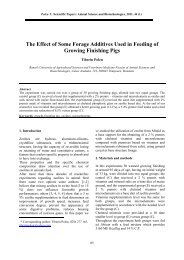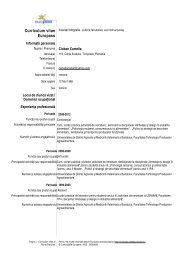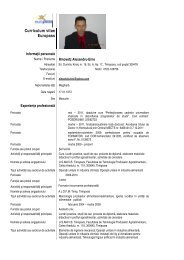journal of linguistic studies
journal of linguistic studies
journal of linguistic studies
Create successful ePaper yourself
Turn your PDF publications into a flip-book with our unique Google optimized e-Paper software.
THE RHETORICAL STRUCTURE<br />
OF RESEARCH ARTICLE ABSTRACTS<br />
IN POLITICAL SCIENCE<br />
BRANKA ŽIVKOVIĆ<br />
University <strong>of</strong> Montenegro, Podgorica, Montenegro<br />
mobydick@t-com.me<br />
ABSTRACT<br />
A substantial number <strong>of</strong> pr<strong>of</strong>essional and academic <strong>journal</strong>s are published<br />
annually. Members <strong>of</strong> academic discourse community are faced with the difficulty <strong>of</strong><br />
finding specific data in lengthy research articles. Therefore, the abstract, as an<br />
independent genre, plays a significant role, especially in situations when potential<br />
readers have to decide whether to read a specific research article or not. The aim <strong>of</strong><br />
this paper is to present the rhetorical structure identified using Bhatia’s model<br />
(1993). The analysis goes further to explain the distinctive <strong>linguistic</strong> features <strong>of</strong> each<br />
move respectively. The analysis is based on 48 research article abstracts, written by<br />
academic writers and taken from prominent British <strong>journal</strong>s in three fields <strong>of</strong> political<br />
science: social, election and foreign policy. The results suggest that Bhatia’s model<br />
should be supplemented with two additional moves.<br />
Keywords: Research Article Abstracts; Rhetorical Structure; Model; Political<br />
Science<br />
1. INTRODUCTION<br />
This paper deals with the analysis <strong>of</strong> research article abstracts in the field <strong>of</strong> political<br />
science by the means <strong>of</strong> methods and principles <strong>of</strong> discourse analysis, or, more precisely,<br />
genre analysis, which has developed as an approach within discourse analysis, with<br />
reliance on academic discourse.<br />
1.1. DISCOURSE ANALYSIS<br />
Discourse analysis explores the language units above the sentence level, taking into<br />
consideration whole texts in a communication context. This approach goes a step further<br />
in comparison to register analysis, which spread especially in the 1960s, emphasising the<br />
structures higher in hierarchy than sentences, whether it comes to spoken or written<br />
discourse (Lakić 1999). It is possible to perceive discourse as an interaction between a<br />
writer and a reader (Bhatia 1993), which is achieved by means <strong>of</strong> respecting Grice’s cooperative<br />
principles on the part <strong>of</strong> the writer and interlocutors in the spoken discourse as<br />
well (Grice 2006). Although this approach made it possible to connect language forms<br />
with language use (Dudley-Evans & St John 1998), discourse analysis, viewed from the<br />
genre analysis perspective, could not examine special types <strong>of</strong> texts, but only general<br />
characteristics <strong>of</strong> the discipline those texts belonged to. On one hand, this approach<br />
lacked an adequate analysis and a thicker description <strong>of</strong> socio-cultural, institutional and<br />
organisational constraints and on the other, little attention was paid to the conventional<br />
79



